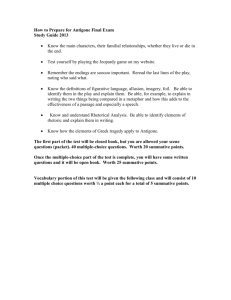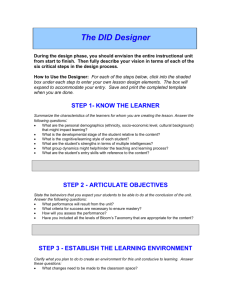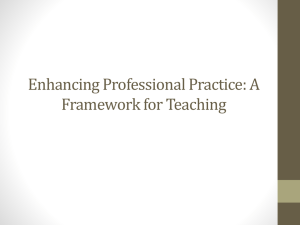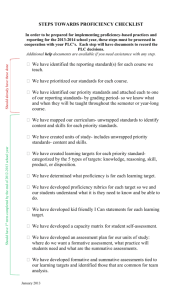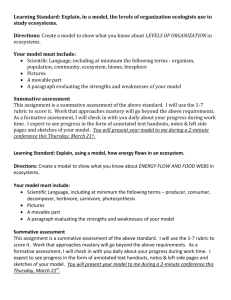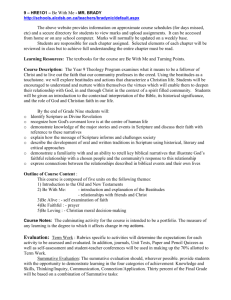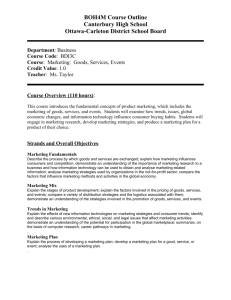BAF3MK First Day Sheet
advertisement
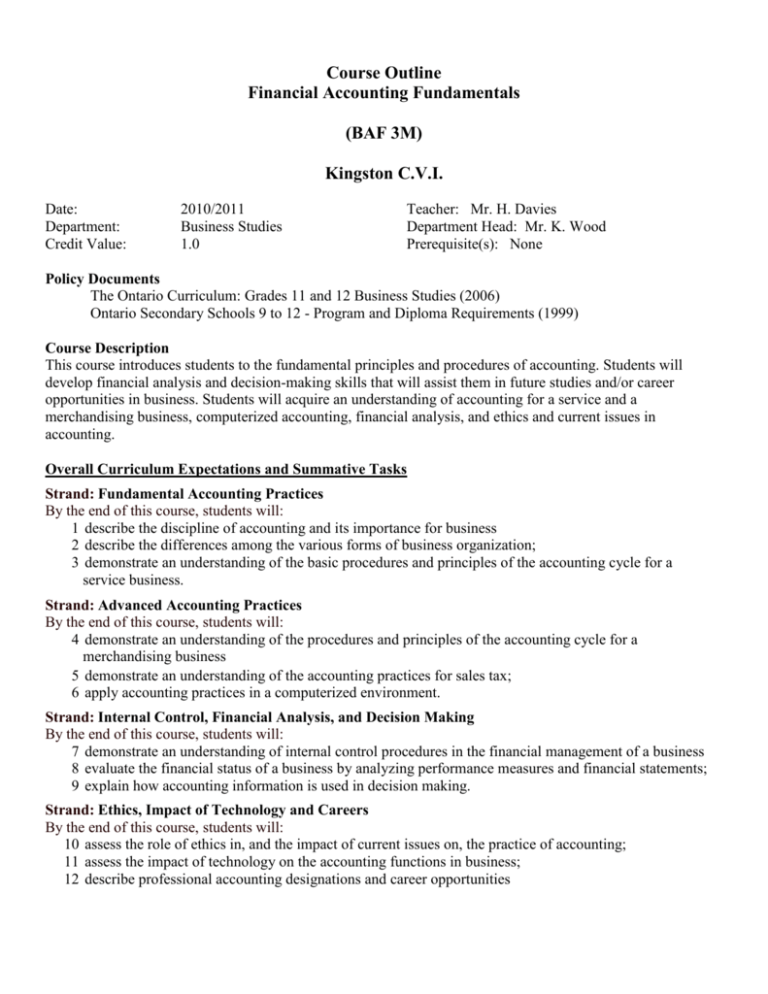
Course Outline Financial Accounting Fundamentals (BAF 3M) Kingston C.V.I. Date: Department: Credit Value: 2010/2011 Business Studies 1.0 Teacher: Mr. H. Davies Department Head: Mr. K. Wood Prerequisite(s): None Policy Documents The Ontario Curriculum: Grades 11 and 12 Business Studies (2006) Ontario Secondary Schools 9 to 12 - Program and Diploma Requirements (1999) Course Description This course introduces students to the fundamental principles and procedures of accounting. Students will develop financial analysis and decision-making skills that will assist them in future studies and/or career opportunities in business. Students will acquire an understanding of accounting for a service and a merchandising business, computerized accounting, financial analysis, and ethics and current issues in accounting. Overall Curriculum Expectations and Summative Tasks Strand: Fundamental Accounting Practices By the end of this course, students will: 1 describe the discipline of accounting and its importance for business 2 describe the differences among the various forms of business organization; 3 demonstrate an understanding of the basic procedures and principles of the accounting cycle for a service business. Strand: Advanced Accounting Practices By the end of this course, students will: 4 demonstrate an understanding of the procedures and principles of the accounting cycle for a merchandising business 5 demonstrate an understanding of the accounting practices for sales tax; 6 apply accounting practices in a computerized environment. Strand: Internal Control, Financial Analysis, and Decision Making By the end of this course, students will: 7 demonstrate an understanding of internal control procedures in the financial management of a business 8 evaluate the financial status of a business by analyzing performance measures and financial statements; 9 explain how accounting information is used in decision making. Strand: Ethics, Impact of Technology and Careers By the end of this course, students will: 10 assess the role of ethics in, and the impact of current issues on, the practice of accounting; 11 assess the impact of technology on the accounting functions in business; 12 describe professional accounting designations and career opportunities 70% Term Summative Assessment Tasks Overall Description of Summative Assessment Expectations Task Evaluated Due Date Level Achieved 1,2,3,4,5,7,9 Unit Tests End of each unit K/U; T/I 3,6,8,9 Monopoly Assignment Mid - March T/I; C; A 10,11,12 Case Studies One per month T/I; C 7,8,9 Sprott Business Challenge Feb – mid-April K/U; C; A 6,8,11 Stock Market Challenge Mid - April K/U; C; A 7,8,9,10,11,12 Corporate Profile End of May T/I; C; A Note: the tasks listed above may change over the course of the semester to allow for teachers to respond to evidence of student learning. Students will be notified in advance of any changes to the summative assessment tasks. All summative tasks must be submitted before a credit is granted. 30% Final Summative (or culminating) Activities Overall Description of Final Summative Assessment Expectations Task Evaluated Exam Level Achieved K/U; T/I; C; A Corporate Profile Presentation C; A Note: the tasks listed above may change over the course of the semester to allow for teachers to respond to evidence of student learning. Students will be notified in advance of any changes to the final summative tasks. All final summative tasks must be completed before a credit is granted. Core Texts: Principles of Accounting, 3rd Edition, D’Amico, Palmer, D’Amico Additional Resources: Assessment and Evaluation Overview 1. Learning Skills and Work Habits Achievement: Learning skills and work habits are instructed, assessed and evaluated separately from your academic work. You will be assessed frequently on your level of achievement of the following six learning skills and work habits (e.g. through conferences with your teacher; observation during class activities; and completion of assignments where specific learning skills are addressed). Learning skills and work habits will be evaluated at mid-term and again at the end of the semester with a letter grade (E=excellent, G=good, S=satisfactory, N=needs improvement). Responsibility (e.g. fulfils responsibilities and commitments within the learning environment, completes and submits class work, homework, and assignments according to agreed-upon timelines; takes responsibility for managing own behaviour) Organization (e.g. devises and follows a plan for completing work and tasks; establishes priorities and manages time to complete tasks and achieve goals; identifies, gathers, evaluates and uses information, technology and resources to complete tasks) Independent Work (e.g. independently monitors, assesses, and revises plans to complete tasks and meet goals; uses class time appropriately to complete tasks; follows instructions with minimal supervision) Collaboration (e.g. accepts various roles and an equitable share of work in a group; responds positively to the ideas, values, opinions and traditions of other; builds healthy peer-to-peer relationships through personal and media-assisted interactions; works with others to resolve conflicts and build consensus to achieve group goals; shares information, resources, and expertise, and promotes critical thinking to solve problems and make decisions) Initiative (e.g. looks for and acts on new ideas and opportunities for learning; demonstrates the capacity for innovation and a willingness to take risks; demonstrates curiosity and interest in learning; approaches new tasks with a positive attitude; recognizes and advocates appropriately for the rights of self and others) Self-regulation (e.g. sets own individual goals and monitors progress towards achieving them; seeks clarification or assistance when needed; assesses and thinks critically on own strengths, needs and interests; identifies learning opportunities, choices, and strategies to meet personal needs and achieve goals; perseveres and makes an effort when responding to challenges) 2. Achievement of Overall Course Expectations: Diagnostic and Formative Assessment Tasks will be used throughout the course and may include quizzes, assignments, activities and investigations. Feedback will be used to help students and teachers to determine next steps to achieve the provincial standard on the overall expectations. These assessment tasks will not be used in the determination of grades. Summative Assessment Tasks will usually be administered at or near the end of a period of learning and may include performance tasks, portfolios of student work, and projects, and unit tests. Summative assessment tasks will be used to evaluate student learning in relation to the overall expectations of the course. Evaluation of the summative assessment tasks will be used to determine the term grade and will be worth seventy percent (70%) of the final grade for the course. The mid-term grade will be derived from evaluation of the summative assessment tasks completed up until that point. As students progress through the course, their grades will represent the students’ most consistent levels of achievement of overall expectations. Where overall expectations are evaluated more than once during the term, evidence of growth will be considered in determining the final grade. Final Summative Tasks will be administered at or near the end of the course. Thirty percent (30%) of the final grade will be based on the evaluation of final summative tasks in the form of an examination and/or other culminating activities. The tasks will be based on overall expectations from all strands and across the categories of knowledge and understanding, thinking, application and communication. Late or Missing Assignments Students are expected to submit assignments by the agreed-upon due dates. It is important that all summative assessment tasks be completed so that there is sufficient evidence of achievement of the overall expectations for a credit to be granted. For this reason, missed due dates will result in action on behalf of the school to collect the missing evidence at the earliest opportunity, in accordance with LDSB procedures included in the student agenda. All final summative tasks must be completed before a credit is granted. Academic Honesty Academic honesty is a fundamental cornerstone in student learning. A breach of academic honesty is the theft of intellectual property and is treated with the utmost seriousness. All breaches of academic honesty will be reported to the school administration and a plan of action will be implemented in accordance with LDSB procedures included in the student agenda. Attendance and Punctuality Regular attendance and punctuality are expected, as they contribute to success at school and are important requirements in the workplace. It is essential that you contact your teacher when you know you will be absent. Following an absence, it is critical that you work diligently to catch up on missed work. Attendance and punctuality are reported on the provincial report card. Please refer to the student agenda for further details. Teaching and Learning Strategies: Some of the teaching and learning strategies that are suitable to material taught in business studies are the use of case studies and simulations, teamwork, brainstorming, mind mapping,problem solving, decision making, independent research, personal reflection, seminar presentations, direct instruction, portfolios, and hands-on applications. In combination, such approaches promote the acquisition of knowledge, foster positive attitudes towards learning, and encourage students to become lifelong learners. Teachers must provide a wide range of activities and assignments that encourage mastery of basic concepts and development of inquiry/research skills.To make their programs interesting and relevant, they must help students to relate the knowledge and skills gained to issues and situations in the business world. It is essential to emphasize the relationship of business studies to the world outside the school to help students recognize that what they are studying is not just a school subject but a reality that profoundly affects their lives, their communities, and the world. Education for Exceptional Students: All students require support from teachers, classmates, family, and friends in order to thrive and to gain full benefit from their school experience. Some students have special needs that require supports beyond those ordinarily received in the school setting. These needs may be met through accommodations. Accommodations to meet the needs of exceptional students are set out in their Individual Education Plans. There are three types of accommodations. Instructional accommodations are changes in teaching strategies, including styles of presentation, methods of organization, or use of technology and multimedia. Environmental accommodations are changes that the student may require in the classroom and/or school environment, such as preferential seating or special lighting. Assessment accommodations are changes in assessment procedures that enable the student to demonstrate his or her learning, such as allowing additional time to complete tests or assignment, or permitting oral responses to test questions.
